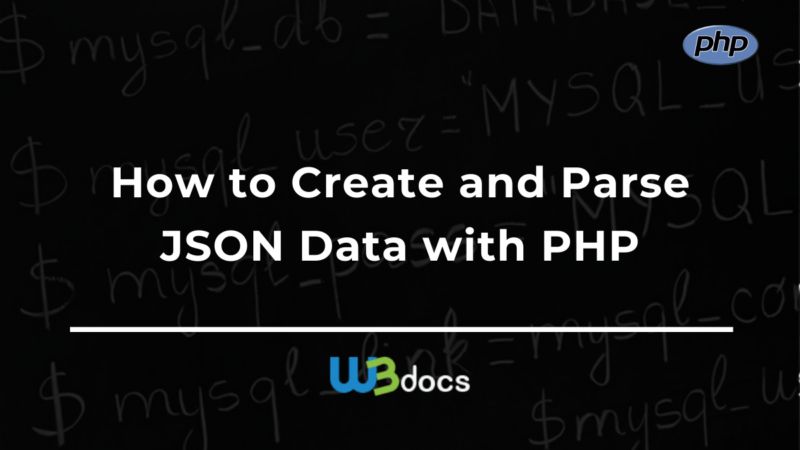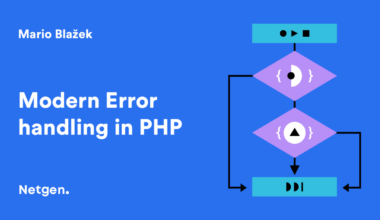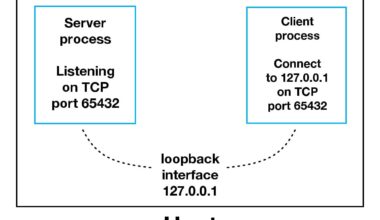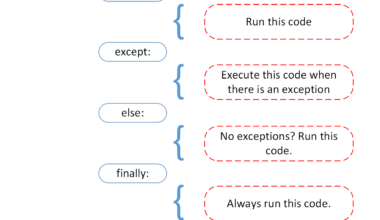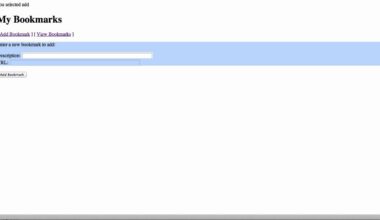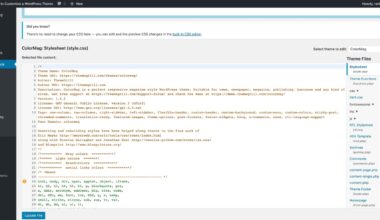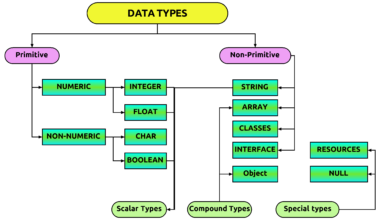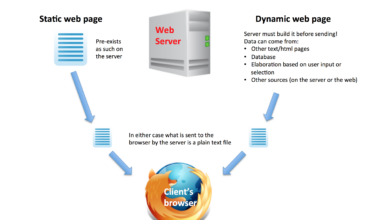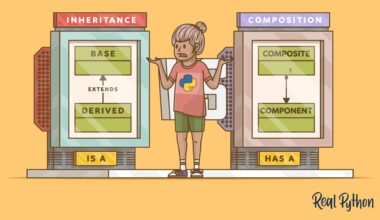Introduction to PHP and JSON
As a developer, we often come across situations where we need to transfer data between different applications or systems. In such cases, we need to have a standard format for data interchange that can be understood by all the applications or systems. This is where JSON and PHP come into the picture.
JSON stands for JavaScript Object Notation, which is a lightweight data interchange format. It is easy to read and write for both humans and machines. JSON format is widely used for data interchange between different systems and web applications due to its simplicity and flexibility.
PHP, on the other hand, is a popular server-side scripting language used for developing web applications. PHP has inbuilt functions that can be used to encode and decode JSON data. This makes PHP a perfect choice for handling JSON data in web applications.
In this article, we will explore the basics of JSON data format and learn how to implement JSON in PHP applications. We will also discuss the benefits of using PHP with JSON and some examples to help you get started. By the end of this article, you will have a clear understanding of how PHP and JSON can be used together to make data exchange between different systems and web applications seamless.
Understanding JSON Data Format
JSON data format is a lightweight and easy-to-read format used for data interchange between different applications. JSON data is represented as key-value pairs, where the keys are strings and the values can be any valid JSON data type, such as objects, arrays, numbers, strings, booleans, or null.
Let’s take a look at an example of JSON data:
{
"name": "John Doe",
"age": 30,
"email": "john.doe@example.com",
"address": {
"street": "123 Main St",
"city": "New York",
"state": "NY",
"zip": "10001"
},
"languages": [
"PHP",
"JavaScript",
"Python"
]
}
In this example, we have an object with five key-value pairs. The “name”, “age”, “email”, and “address” keys have string values, while the “languages” key has an array as its value. The “address” key also has an object as its value, which contains nested key-value pairs for the street, city, state, and zip.
JSON data can be easily converted to and from PHP arrays using the json_encode() and json_decode() functions. The json_encode() function is used to convert a PHP array into a JSON string, while the json_decode() function is used to convert a JSON string back into a PHP array.
Here’s an example of how to use these functions:
// PHP array
$data = [
"name" => "John Doe",
"age" => 30,
"email" => "john.doe@example.com",
"address" => [
"street" => "123 Main St",
"city" => "New York",
"state" => "NY",
"zip" => "10001"
],
"languages" => [
"PHP",
"JavaScript",
"Python"
]
];
// Convert PHP array to JSON string
$json = json_encode($data);
// Output JSON string
echo $json;
// Convert JSON string to PHP array
$array = json_decode($json, true);
// Output PHP array
print_r($array);
Understanding the JSON data format is essential for working with JSON data in PHP applications. With the help of the json_encode()
Benefits of Using PHP with JSON
Using PHP with JSON has several benefits that make it a popular choice among developers for handling data interchange in web applications. Here are some of the key benefits of using PHP with JSON:
Easy Data Exchange
One of the primary benefits of using PHP with JSON is that it makes data exchange between different systems and web applications seamless. JSON data can be easily converted to and from PHP arrays using the built-in json_encode() and json_decode() functions. This makes it easy to exchange data between different systems and web applications that use different programming languages.
Lightweight and Fast
JSON is a lightweight data interchange format that is easy to read and write for both humans and machines. It is also faster than other data interchange formats like XML, which makes it a popular choice for handling large amounts of data in web applications. PHP’s built-in functions for handling JSON data are also optimized for speed and performance, making it a fast and efficient option for handling JSON data in web applications.
Flexible Data Representation
JSON data can represent various data types, including objects, arrays, numbers, strings, booleans, and null values. This makes it a flexible data representation format that can handle different types of data in web applications. PHP’s built-in functions for handling JSON data also provide a range of options for formatting JSON data, making it easy to customize the data representation to suit your specific needs.
Supports RESTful APIs
RESTful APIs are a popular choice for building web applications that communicate with each other. JSON is a preferred data interchange format for RESTful APIs due to its simplicity and flexibility. PHP’s built-in functions for handling JSON data make it a great choice for building RESTful APIs that communicate with other web applications.
In conclusion, using PHP with JSON provides several benefits for handling data interchange in web applications. Its lightweight and fast nature, flexible data representation, and support for RESTful APIs make it a popular choice among developers. By mastering the basics of JSON data format and implementing it in PHP applications, you can leverage the benefits of this powerful combination to build robust and efficient web applications.
Implementing JSON in PHP Applications
Now that we understand the basics of JSON data format and the benefits of using PHP with JSON, let’s take a look at how to implement JSON in PHP applications.
The first step in implementing JSON in PHP applications is to ensure that the data you want to exchange is in a PHP array format. Once you have the data in a PHP array, you can use the json_encode() function to convert the PHP array into a JSON string. This JSON string can then be sent to another system or application for processing.
Here’s an example of how to encode a PHP array into a JSON string:
// PHP array
$data = [
"name" => "John Doe",
"age" => 30,
"email" => "john.doe@example.com"
];
// Convert PHP array to JSON string
$json = json_encode($data);
// Output JSON string
echo $json;
The output of the above code will be a JSON string that looks like this:
{
"name": "John Doe",
"age": 30,
"email": "john.doe@example.com"
}
Once you have the JSON string, you can send it to another system or application using various methods such as HTTP requests or sockets. The receiving system or application can then use the json_decode() function to convert the JSON string back into a PHP array for processing.
Here’s an example of how to decode a JSON string into a PHP array:
// JSON string
$json = '{"name":"John Doe","age":30,"email":"john.doe@example.com"}';
// Convert JSON string to PHP array
$array = json_decode($json, true);
// Output PHP array
print_r($array);
The output of the above code will be a PHP array that looks like this:
Array
(
[name] => John Doe
[age] => 30
[email] => john.doe@example.com
)
In addition to encoding and decoding JSON data, PHP also provides functions for validating JSON data and handling errors that may occur during encoding or decoding. The json_last_error() function can be used to get the last error that occurred during encoding or decoding, while the json_last_error_msg() function can be used to get a human
Final Thought
In conclusion, understanding JSON data format and implementing it in PHP applications can significantly improve data interchange between different systems and web applications. JSON’s lightweight and flexible nature, combined with PHP’s built-in functions for handling JSON data, make it a powerful combination for developers.
By using PHP with JSON, developers can easily exchange data between different applications and systems, handle large amounts of data efficiently, and build RESTful APIs that communicate with other web applications. PHP’s built-in functions for handling JSON data are also optimized for speed and performance, making it a fast and efficient option for handling JSON data in web applications.
In addition to the benefits of using PHP with JSON, developers can also take advantage of the various tools and libraries available for working with JSON data in PHP applications. These tools and libraries can help simplify the process of encoding and decoding JSON data, validate JSON data, and handle errors that may occur during encoding or decoding.
Overall, mastering the basics of JSON data format and implementing it in PHP applications can help developers build robust and efficient web applications that can handle data interchange seamlessly. With the help of PHP and JSON, developers can make data interchangeable and take their web applications to the next level.
